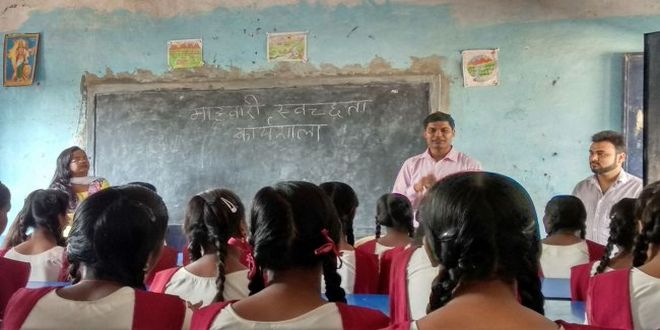Highlights
- 70% of mothers consider menstruation ‘dirty’: WaterAid-UNICEF Report
- Menstrual hygiene is intimately linked with sanitation facilities: Report
- Girls miss 1-2 days of school per month during menstruation: Report
Kochi: A study released on the eve of the Menstrual Hygiene Day has emphasised the need for educational curriculum to focus on Menstrual Hygiene Management (MHM)along with its practical and biological aspects.
“The national educational curriculum focuses on practical and biological aspects of menstruation and personal hygiene rather than MHM,” said the new WaterAid-UNICEF global report.
There is a lack of information on psycho-social changes and reproductive health or skills-based hygiene education and low capacity among teachers/frontline staff on MHM, said the report quoting various studies.
In a statement, WaterAid India has called for WASH facilities that are responsive to the menstrual hygiene needs of women and girls.
With more girls and women having access to toilets than ever before, Swachh Bharat Mission (SBM) has critical implications for their ability to be able to manage their monthly menses in a safe and hygienic manner, it said.
Also Read: A Sanitary Napkin Making Unit Set Up In Ahmedabad’s Sabarmati Central Jail To Employ Women Inmates
Several studies report that many girls do not change pads in school and that more girls would attend if better facilities existed, the report said.
The report quoting various studies in 2015 and 2016 said that girls typically miss 1-2 days of school per month.
In Maharashtra and Tamil Nadu, menstruating girls are asked to stay away from religious spaces, kept in isolation, not allowed to play outside, or go to school, it added.
The report said 70 per cent of mothers consider menstruation “dirty,” further perpetuating taboos.
It said 58 per cent use hygienic protection (locally prepared pads, sanitary pads and tampons) while 52 per cent of girls are unaware of menstruation pre-menarche.
The report also highlighted lack of dedicated operations and maintenance funds, poor construction standards, weak management and poor water availability inside toilets in schools.
Hand-washing facilities with soap, sanitary products/disposal mechanisms (in light of increasing pad use and need for disposal systems), and hygiene education can be strengthened in many schools, it said.
Arundati Muralidharan, Manager-Policy at WaterAid India said: “Today, we have a critical window of opportunity to provide girls and women across India with clean water, decent toilets and good hygiene, and ensure that these facilities are responsive to their monthly menstrual needs.”
The benefits conferred by such actions will complement ongoing efforts to improve the health and well-being of adolescents, and to keep them in school on reaching puberty, she added.
Good menstrual hygiene calls for the use of clean material to absorb or collect blood that can be changed in privacy and as often as necessary, using soap and water for washing the body as required and having access to facilities to dispose of used menstrual management materials, the report said.
The ability of a girl or woman to maintain hygiene during her menses, is therefore intimately linked with the availability of water, sanitation, and hygiene facilities in her home or community, school, place of work, and other publics paces, it said.
Also Read: Moon Time: An A-Z Guide To Menstrual Hygiene By US Returned Software Professional
























